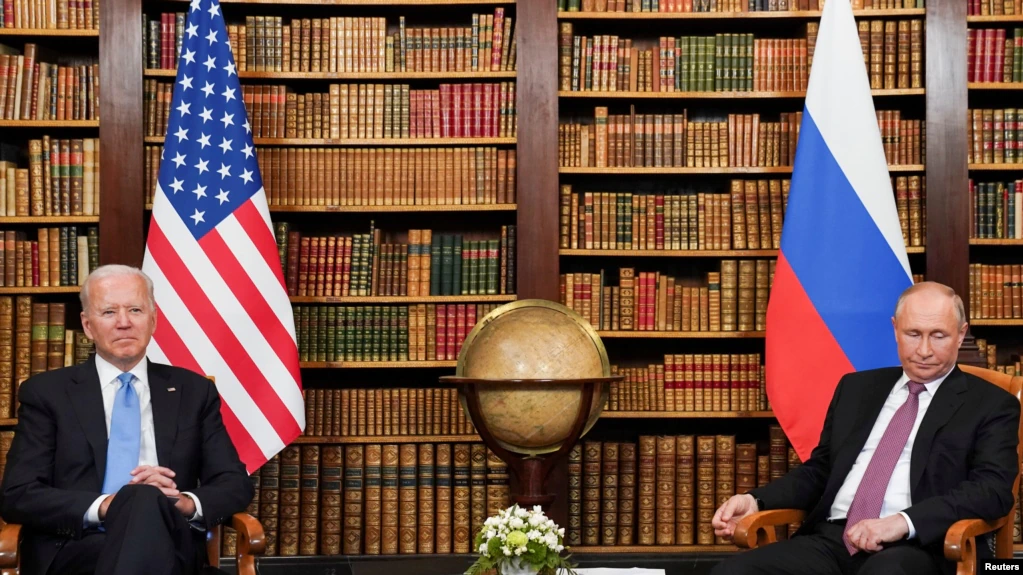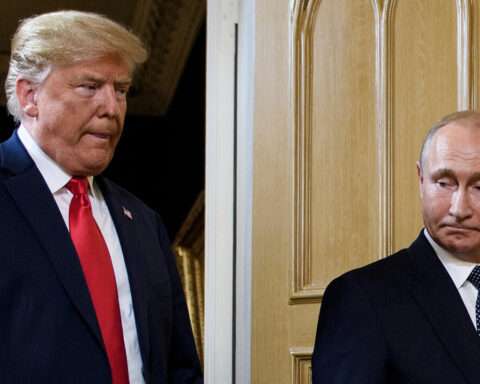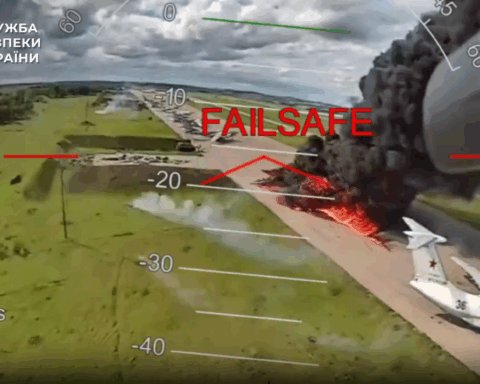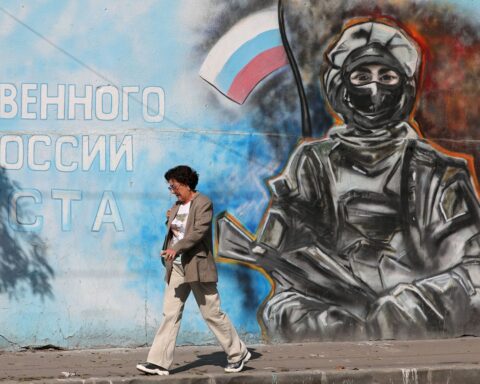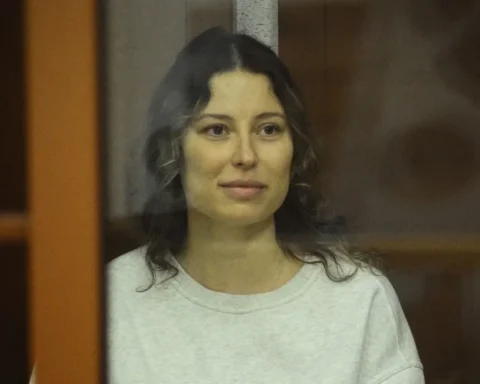U.S. President Joe Biden has predicted Russia will make a move on Ukraine but that President Vladimir Putin likely hasn’t decided and the country would face severe economic consequences should a military offensive occur.
“I’m not so sure he is certain what he is going to do. My guess is he will move in. He has to do something,” Biden said at a wide-ranging press conference on January 19 to mark his first year in office.
But Biden said an attack on Ukraine would be a “disaster for Russia,” exerting a tremendous human, economic, and political toll on Moscow.
“Our allies and partners are ready to impose severe costs and significant harm on Russia and the Russian economy,” he said, including sanctions on the energy sector and making it impossible for Russian banks to deal in U.S. dollars, the world’s reserve currency.
Although the Russian military is more powerful that Ukraine’s, Biden suggested the loss of life for the Russians would be “heavy.”
“This is not all just a cakewalk for Russia,” he said. “Militarily, they have overwhelming superiority. And as it relates to Ukraine, they’ll pay a stiff price immediately, near-term, medium-term and long-term, if they do it.”
On Putin, Biden said he believes the Russian president “still does not want any full-blown war” but is looking for a degree of escalation and confrontation.
Russia has amassed an estimated 100,000 troops in occupied Crimea and near Ukraine’s borders, raising alarm bells in Western capitals that Moscow is preparing further military action against Ukraine. Moscow already backs separatist fighters in an ongoing war in eastern Ukraine that has claimed more than 13,200 lives since 2014, the same year it occupied Crimea.
Russia denies planning an invasion, even as it ramps up belligerent rhetoric and presses a series of demands about NATO expansion and the security architecture in Eastern Europe.
Biden said he believed Putin intends to test NATO and that the response to Russia’s actions would depend on their scale and the ability of the West to overcome differences.
“Russia will be held accountable if it invades and it depends on what it does. It’s one thing if it’s a minor incursion and we (allies) end up having to fight about what to do and what to not do, etc.,” Biden said.
“But if they actually do what they’re capable of doing…it is going to be a disaster for Russia if they further invade Ukraine,” Biden added.
Pressed on what he meant by “minor incursion,” Biden said “there are differences” in Western capitals about how to respond depending on the exact nature of what Russia does.
“Big nations can’t bluff, No. 1. No. 2, the idea that we would do anything to split NATO…would be a big mistake. So the question is, if it’s something significantly short of a significant invasion or…just major military forces coming across. For example, it’s one thing to determine if they continue to use cyber-efforts; well, we can respond the same way,” he said.
In an attempt to clarify the president’s convoluted response, immediately after the press conference the White House issued a statement.
“If any Russian military forces move across the Ukrainian border, that’s a renewed invasion, and it will be met with a swift, severe, and united response from the United States and our allies. President Biden also knows from long experience that the Russians have an extensive playbook of aggression short of military action, including cyberattacks and paramilitary tactics. And he affirmed today that those acts of Russian aggression will be met with a decisive, reciprocal, and united response,” the White House said.
Last week, Russian diplomats met with top officials from the United States, NATO, and European states to discuss Moscow’s sweeping demands, many of which Western officials have described as nonstarters. The talks yielded no breakthroughs, and that, plus belligerent rhetoric from Moscow, has alarmed Western officials.
“Putin has, I know, a stark choice, either escalation or diplomacy,” Biden said.
Russia has also moved troops to Belarus for what it calls joint military exercises, giving it the option of attacking neighboring Ukraine from the north, east, and south.
U.S. Secretary of State Antony Blinken is due to meet with his Russian counterpart, Sergei Lavrov, on January 21 in the Swiss city of Geneva.
In Kyiv to consult with the Ukrainians, Blinken said on January 19 that the United States prefers to continue diplomacy with Moscow as long as it can to avoid aggression against Ukraine.
Blinken is set to travel to Berlin for four-way talks with Britain, France, and Germany on January 20 as he looks to ensure Western unity before heading to Geneva to meet Lavrov.


